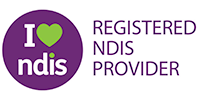Introduction
In today’s society, the importance of disability support workers cannot be overstated. These dedicated professionals play a crucial role in enhancing the quality of life for individuals with disabilities. Disability support workers assist their clients with various daily tasks, provide emotional support, and help them integrate into their communities.
To excel in this field, a disability support worker must possess a unique set of skills that go beyond the ordinary. In this article, we will explore the top five skills that are essential for anyone pursuing a career in disability support. When it comes to NDIS providers in Adelaide, these skills are particularly valuable.
Empathy and Compassion
At the heart of disability support work lies the ability to empathise with and show genuine compassion for individuals facing physical or cognitive challenges. Empathy allows support workers to connect with their clients on a deeper level, understand their needs, and provide the emotional support necessary for them to thrive. It’s not just about completing tasks; it’s about caring for the person as a whole.
Effective Communication
Clear and effective communication is paramount in disability support work, especially for NDIS providers in Adelaide. Support workers must be able to communicate with their clients, their clients’ families, and other healthcare professionals. This includes active listening, interpreting non-verbal cues, and adapting communication styles to suit the individual’s needs, whether it’s using sign language, picture boards, or simple and concise language. Effective communication is the cornerstone of providing top-notch support to individuals with disabilities in Adelaide and beyond.
Patience and Flexibility
Disability support workers in supported independent living in Adelaide often encounter situations that require immense patience and flexibility. Clients may have unpredictable behaviours or require assistance with repetitive tasks. Patience is crucial in maintaining a calm and supportive environment. Being flexible and adaptable ensures that support workers can respond to the ever-changing needs of their clients in supported independent living in Adelaide.
Problem-Solving Skills
Each person with a disability is unique, and disability support workers often need to come up with creative solutions to address specific challenges. Problem-solving skills are essential for identifying barriers that may hinder a client’s independence and finding innovative ways to overcome them. This might involve modifying daily routines, implementing assistive technologies, or seeking community resources.
Knowledge and Training
Staying informed and continually improving one’s knowledge is essential in the disability support field, particularly for those involved in supported independent living in Adelaide. Support workers should have a strong foundation in the medical and psychological aspects of disabilities. They should also receive ongoing training to keep up with advancements in the field and changes in best practices. Certifications and relevant courses can help ensure that support workers are well-prepared to provide the highest level of care in supported independent living in Adelaide.
Conclusion
Becoming a disability support worker is not just a job; it’s a calling. It requires a unique blend of skills, including empathy, effective communication, patience, problem-solving, and a commitment to ongoing learning. These professionals are the unsung heroes who make a significant difference in the lives of those they serve. As we recognise the top five skills of a disability support worker, we also acknowledge the invaluable contributions they make to society by enabling individuals with disabilities to lead fulfilling and meaningful lives.



